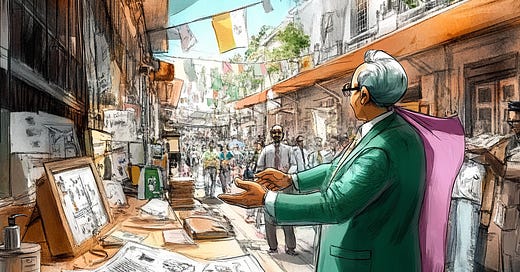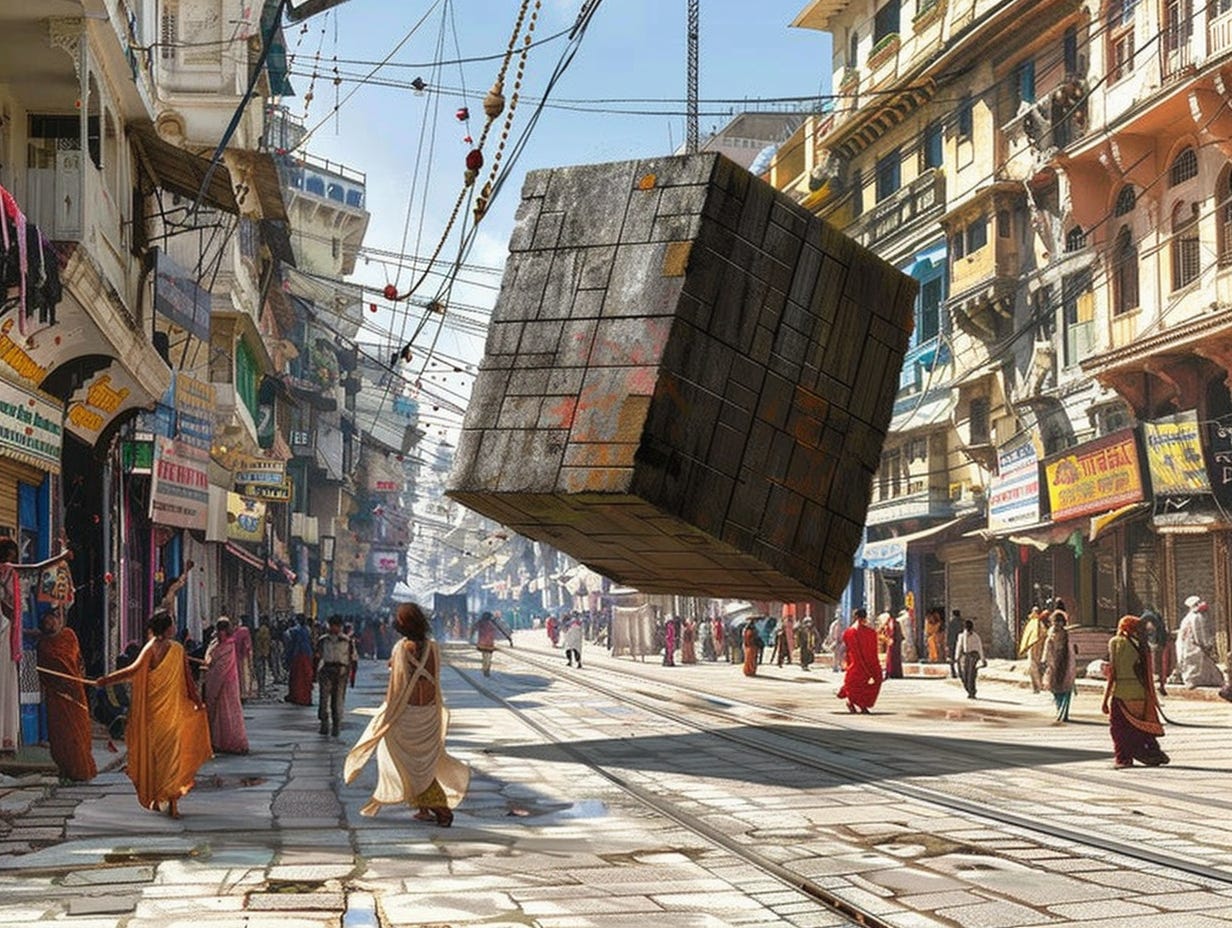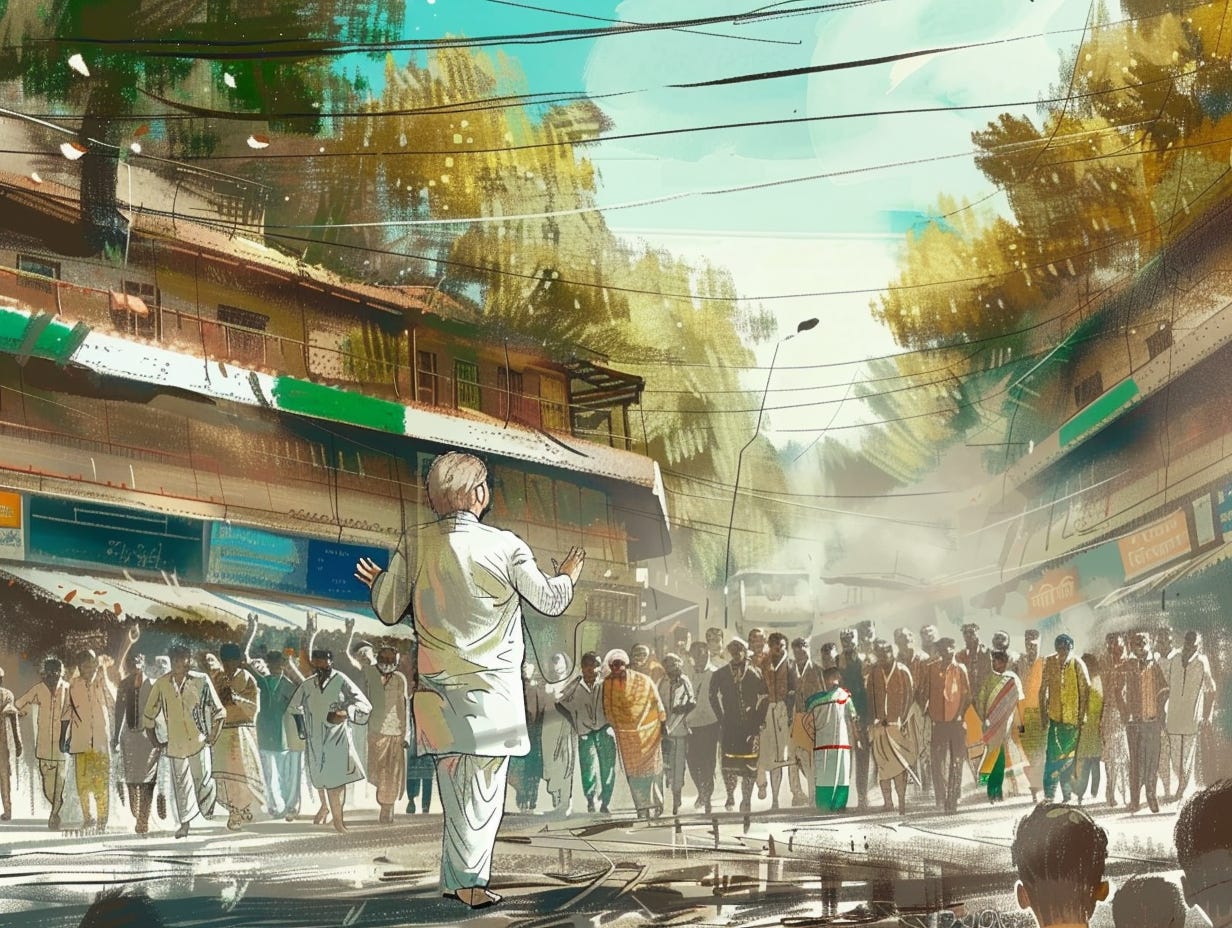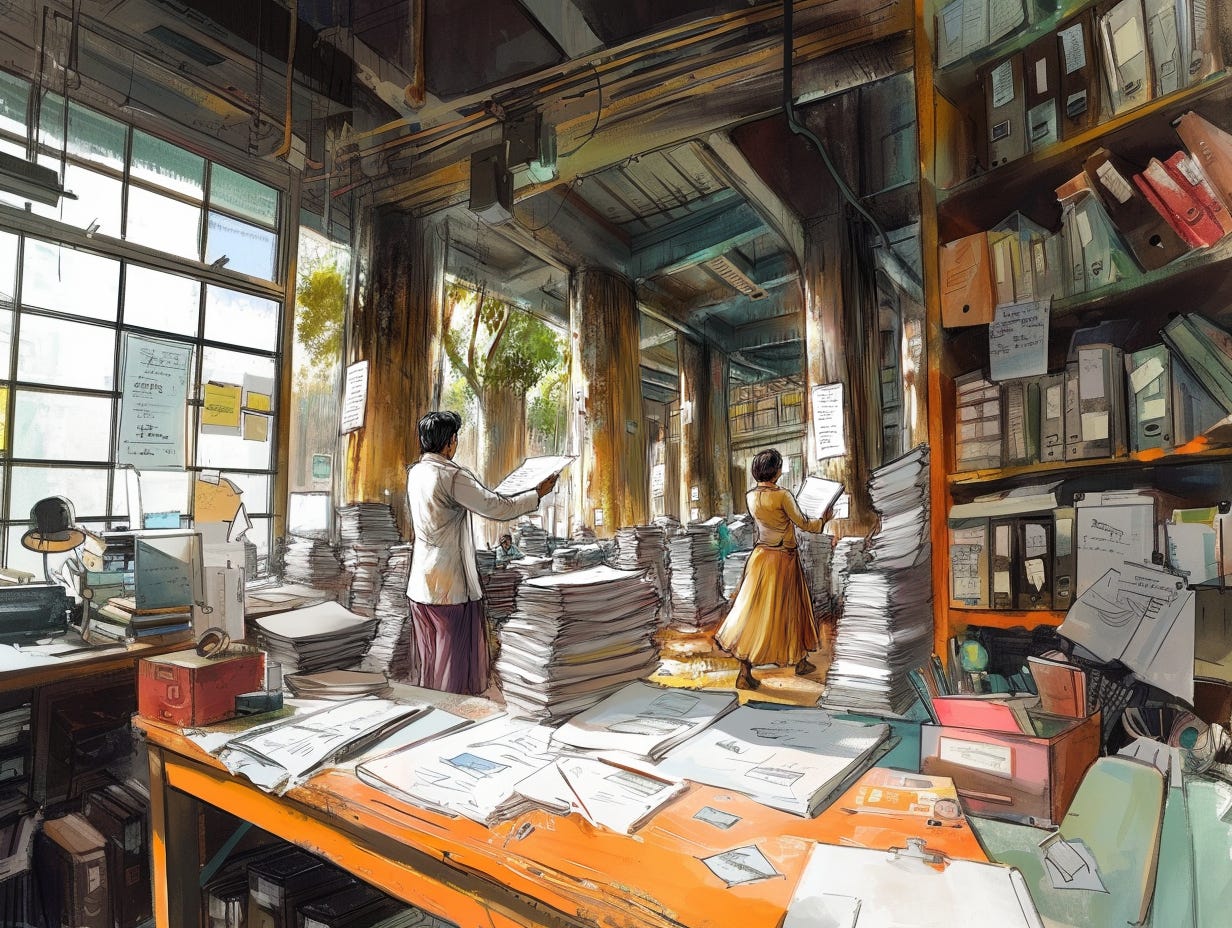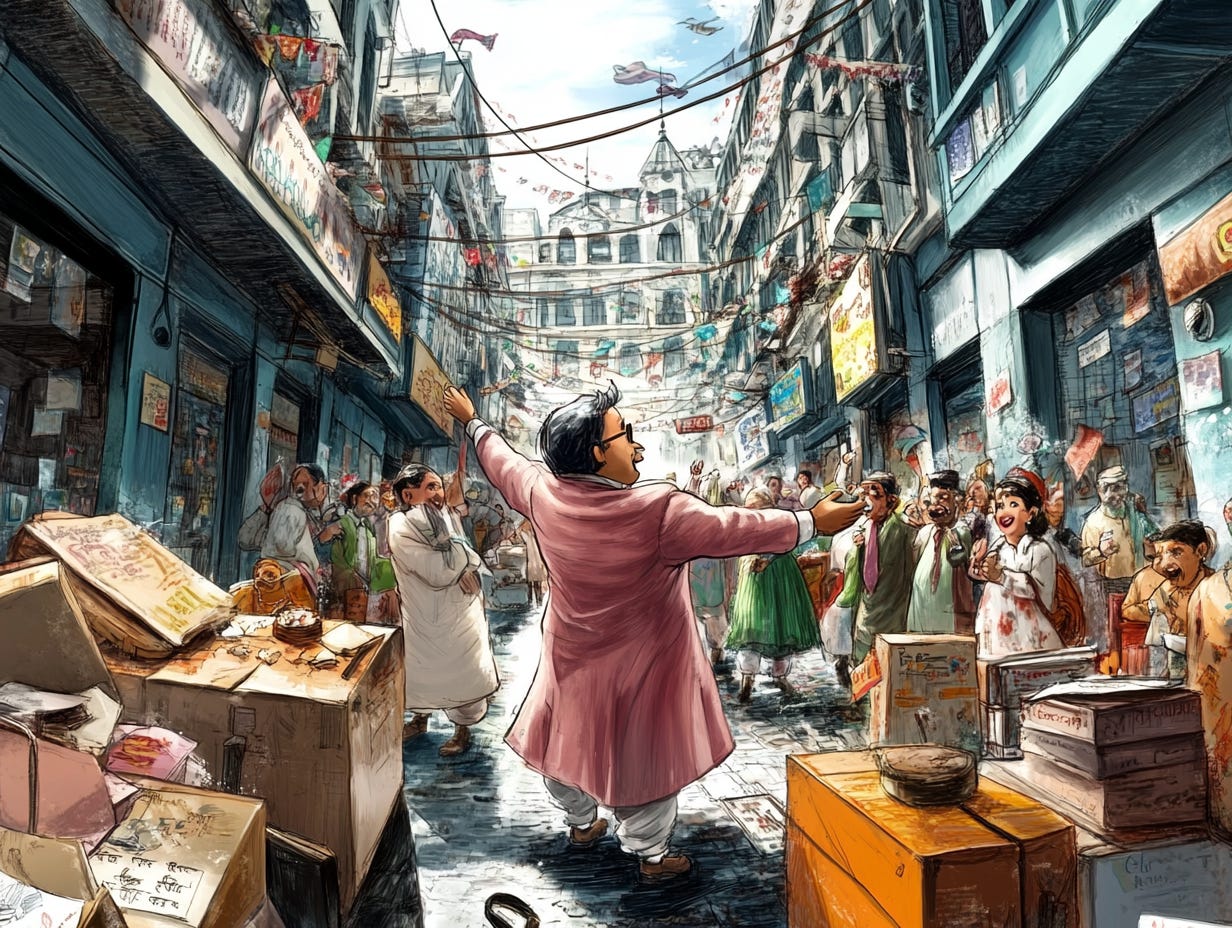Political Intelligence 2: The Hard Problem
TLDR; Politics is everywhere in our lives, shaping our conversations and emotions, yet it's incredibly difficult to explain why we need politicians at all. On one hand, we can't escape politics – it's in our WhatsApp groups, social media, and family gatherings. But on the other, when you look at the nuts and bolts of governance, it's not clear why we need elected officials rather than just administrators or bureaucrats.
It's like we're taking actors and instead of casting them in a movie, we give them the keys to power. Why do we do this? Is there a better way to bridge the gap between public sentiment and effective administration?
This paradox becomes even more glaring when we consider the global challenges we face. Climate change, economic inequality, and technological disruption don't respect national borders, yet we cling to a system that parcels out power based on geographical boundaries and charismatic performances. Are we perpetuating an outdated model simply because it's familiar? But then again, isn't there something deeply human about our need for figureheads and representatives? It's a puzzle that continues to challenge our notions of democracy and effective leadership in an increasingly complex world.
The Anglosphere has been at the center of the world-system for the last two hundred and fifty years, and England followed by the United States have been its most important protagonists. Is the political crisis in the US a crisis of liberalism? Of the nation state form? Both?
I am deeply skeptical of the nation state. Have always been, and am even more so now. Why would you think climate action is a negotiation between nations? Aren’t national interests more of a hindrance? The crisis of the nation-state is all around us, and has infected its central actors. There are many ways of parsing the electoral drama unfolding this fall, but my way is by placing it against the backdrop of the contradictions of the nation state form itself.
Keep this in mind as we explore some themes at the core of political intelligence.
Thesis
Let’s start by talking about a hard problem, and by hard problem, I don't mean a problem that's hard, but in the way David Chalmers says 'The Hard Problem of Consciousness.' A hard problem is one where there's a seemingly unbridgeable gap between two points of view. For consciousness, the hard problem arises because there seems to be nothing in any conception of matter that supports something like consciousness. Subjectivity has no place in an objective world. But what's more obvious to us than our own subjectivity? How is it that the one thing that's most certainly real (remember Descartes' "I think therefore I am") is also the least explainable from a scientific perspective?
Let's deal with the hard problem of consciousness on some other occasion; like Augustine was rumored to have said: "Lord give me chastity and continence, but not yet." We are here to talk about political intelligence, and that's where I want to introduce another hard problem.
On the one hand, politics dominates social life. Every Whatsapp group, every social media feed and every family gathering discusses politics. Politicians, love em or hate em, are among the most recognizable humans alive. If something is socially real, it's politics. Leaning on the analogy with matter and consciousness, politics is on the subjective end of social life. It makes us feel, sometimes intensely, sometimes with calm satisfaction, and sometimes terror. It is how we experience social life that's bigger than us. Especially national life.
Yet, despite its overwhelming presence, politics is a puzzle. Just as consciousness defies a neat explanation from the standpoint of physical processes, politics resists straightforward interpretation through the lens of rationality or objective analysis. We engage with it daily, but much like the hard problem of consciousness, there seems to be an unbridgeable gap between our lived experience of politics and our capacity to fully grasp its usefulness, it functional significance in our social lives.
Consider the cacophony of voices that make up the political landscape—media pundits, social media influencers, the person next to you at the coffee shop. Each offers a perspective, often conflicting, sometimes diametrically opposed. This diversity of opinions, while vital, contributes to the complexity of understanding politics. The subjective nature of politics, much like consciousness, is rooted in individual experience, shaped by personal history, cultural background, and even psychological disposition. But can these subjective experiences ever coalesce into an objective understanding of governance?
This question brings us to the heart of the hard problem of political intelligence. If politics is as deeply personal as it is public, then how do we navigate the collective social space it occupies?
In short: why do politicians exist?
Antithesis
The objective end of social life is the administrative state, the entity that governs us, implements policies, distributes public goods and punishes the guilty. I don't understand why politicians are tacked on to the state apparatus. I grasp the need for a permanent bureaucracy. I understand the other Weberian obsession - the charismatic figure, the dictator or the populist. I understand military rule - of course the guy with the gun is going to rule us, right? All of these figures make sense if you lay down the nuts and bolts of the administrative state.
I even understand the people's representative, the person responsible for relaying their constituents' needs to the governing apparatus. But why implement any of these roles via politicians? That is to say: any of these roles could be implemented using other mechanisms. You could choose your representative at random, like juries are selected. Would that random person do worse than the lot representing us today? Some nations are run without politicians. Communist states such as the Soviet Union and China are run by bureaucrats, not politicians. No one's kissing babies. The party doesn't want stars; no individual is above the collective.
All of which makes sense from the POV of the objective social machine. Back to the subjective realm, once there's such a thing as 'people' you need ways of reflecting that population back to itself, like a mirror. But that job is done well and with great acclaim by entertainers and artists. They too channel the public mood. And in that sense, the act of electioneering has a lot in common with the entertainment industry. But then to take these entertainers and hand them the keys to the kingdom - and turn them into wielders of power....? The legitimization of power through a vote, and more importantly, the seeking of the vote, is a rather strange act.
Indeed, it's a peculiar spectacle, this ritual of electioneering. The transformation of an individual from a mere entertainer of public sentiments into a wielder of state power seems almost alchemical. In some Indian cultures, the community selects one of its members to play the role of Rama. During that period, this person is treated as divinity; even their social superiors bow to them while they are playing their role. Politicians are like that. It is as if the act of garnering votes imbues these figures with a legitimacy that transcends their original role, turning the performance into something with real-world consequences. But why do we need this transformation? Why do we insist on the fusion of entertainment and governance, of charisma and administration? The politician, in this sense, is more than a bureaucrat or an administrator; they are shamans, mediators between the subjective world of public sentiment and the objective demands of governance.
Yet, the fusion of entertainment and governance through the political process often leads to a paradox: the more a politician excels in the performative aspects of their role, the more their actual capacity to govern is called into question. This tension between the performative and administrative aspects of politics is a reflection of the larger hard problem of political intelligence—how to balance the need for a social mirror reflecting the needs of the people with the demands of effective governance.
There’s a clue in the composition of politicians in the US: they are overwhelmingly lawyers, with a sprinkling of soldiers. Both professions demand a kind of systemic intelligence that the administrative state also demands while also offering opportunities for charismatic leadership.
BTW, why are there so few policemen in the US political leadership? There are so many prosecutors. It’s not even about violence, for there’s no shortage of soldiers. Mayor Adams of New York is an exception that proves the rule.
So to restate the hard problem of politics:
1. Thesis: of course there are politicians.
2. Antithesis: why are there any politicians?
Note: there's nary a mention of AI or intelligence in the statement of the hard problem, but our hero will enter stage left in scene 2.

